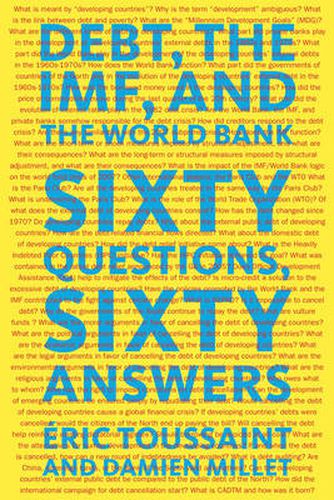Readings Newsletter
Become a Readings Member to make your shopping experience even easier.
Sign in or sign up for free!
You’re not far away from qualifying for FREE standard shipping within Australia
You’ve qualified for FREE standard shipping within Australia
The cart is loading…






Mainstream economists tell us that developing countries will replicate the economic achievements of the rich countries if they implement the correct free-market policies. But scholars and activists Toussaint and Millet demonstrate that this is patently false. Drawing on a wealth of detailed evidence, they explain how developed economies have systematically and deliberately exploited the less-developed economies by forcing them into unequal trade and political relationships. Integral to this arrangement are the international economic institutions ostensibly created to safeguard the stability of the global economy–the International Monetary Fund (IMF) and the World Bank–and the imposition of massive foreign debt on poor countries. The authors explain in simple language, and ample use of graphics, the multiple contours of this exploitative system, its history, and how it continues to function in the present day.
Ultimately, Toussaint and Millet advocate cancellation of all foreign debt for developing countries and provide arguments from a number of perspectives–legal, economic, moral. Presented in an accessible and easily-referenced question and answer format, Debt, the IMF, and the World Bank is an essential tool for the global justice movement.
$9.00 standard shipping within Australia
FREE standard shipping within Australia for orders over $100.00
Express & International shipping calculated at checkout
Mainstream economists tell us that developing countries will replicate the economic achievements of the rich countries if they implement the correct free-market policies. But scholars and activists Toussaint and Millet demonstrate that this is patently false. Drawing on a wealth of detailed evidence, they explain how developed economies have systematically and deliberately exploited the less-developed economies by forcing them into unequal trade and political relationships. Integral to this arrangement are the international economic institutions ostensibly created to safeguard the stability of the global economy–the International Monetary Fund (IMF) and the World Bank–and the imposition of massive foreign debt on poor countries. The authors explain in simple language, and ample use of graphics, the multiple contours of this exploitative system, its history, and how it continues to function in the present day.
Ultimately, Toussaint and Millet advocate cancellation of all foreign debt for developing countries and provide arguments from a number of perspectives–legal, economic, moral. Presented in an accessible and easily-referenced question and answer format, Debt, the IMF, and the World Bank is an essential tool for the global justice movement.